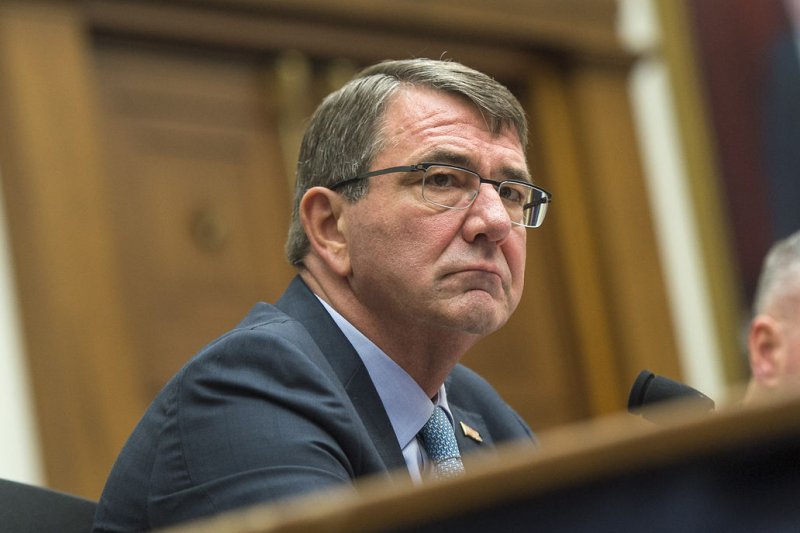Secretary of Defense Ashton Carter said coordination among the United States, South Korea and Japan is key to deter North Korea threats. Photo by Kevin Dietsch/UPI. |
License Photo
WASHINGTON, June 20 (UPI) -- U.S. Defense Secretary Ashton Carter said mutual cooperation among the United States, South Korea and Japan is essential in a response to North Korea's nuclear and missile threats, which he said ranks as one of the most dangerous problems the United States faces today.
In his keynote address delivered at a Center for a New American Security forum in Washington, D.C., Carter said coordination among the three countries is important, and that they plan to hold a trilateral anti-missile exercise, Voice of America reported Monday.
The defense secretary was referring to a planned drill to be held on the sidelines of the Rim of the Pacific naval exercises, also known as RIMPAC.
Each country is to deploy an Aegis destroyer, armed with a ballistic missile defense system during the drills. Exercises are to focus on detecting and tracking projectiles, but not interception.
Carter also included North Korea in the top five security threats the United States faces at present. The dangers include Russia, China, North Korea, Iran and the extreme militants of the Islamic State, the group also identified as Daesh, ISIS and ISIL.
Deterrence must be strengthened against North Korea's nuclear and missile provocations, Carter said.
Pyongyang's nuclear weapons program has been universally condemned but North Korea has shown no interest in giving up any weapons of mass destruction.
In early May during a much anticipated Seventh Party Congress, Kim Jong Un declared the country is willing to be accepted as a "responsible nuclear weapons state."
Washington remains firmly opposed to North Korea nuclearization but Pyongyang has agreed to meet with U.S., Japanese, Russian, Chinese and South Korean envoys in Beijing, Yonhap reported.
The 26th Northeast Asia Cooperation Dialogue that begins Wednesday will mark the first time Pyongyang's envoys publicly meet with representatives from the member states of the six-party talks since 2012.















